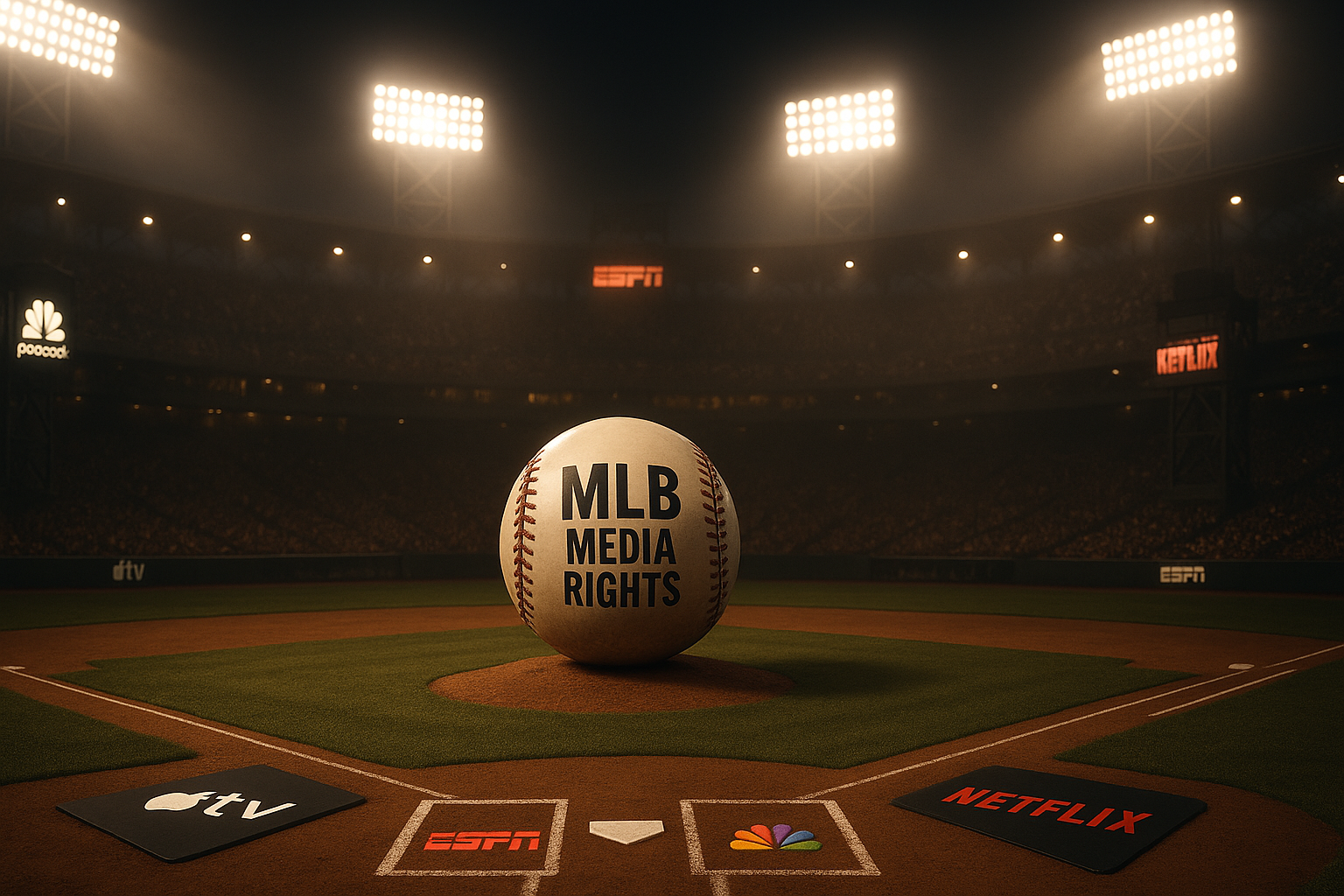Major League Baseball is nearing a major shake-up of its media rights deals, and boy oh boy, does it tell us something about where sports broadcasting is headed.
The dominoes started falling when ESPN decided to back away from parts of its current MLB agreement after this season. What's followed has been nothing short of a high-stakes game of musical chairs—except instead of cheap plastic seats, we're talking about broadcasting packages worth billions.
Here's the scorecard as it stands: Apple is throwing in the towel on its Friday Night Baseball package. (Remember when that was supposed to revolutionize how we watch America's pastime? Yeah, me too.) NBC and its streaming service Peacock are sliding into that vacancy while also scooping up Sunday Night Baseball and Wild Card games. ESPN isn't abandoning ship entirely but is making a fascinating pivot—they're buying MLB.tv, the league's streaming service for out-of-market games. And Netflix? They're grabbing the Home Run Derby rights.
I've been covering sports media deals since 2016, and this reshuffling speaks volumes about how differently these companies see their futures.
Apple's retreat is particularly telling. When they first announced their baseball package, it came with all the pomp and circumstance you'd expect from Cupertino. Revolutionary viewing experience! Cutting-edge stats! A new era in sports broadcasting! And now... they're gone before they even made a dent.
Look, we've seen this movie before. Tech giant gets starry-eyed about sports content, makes a splashy announcement, then discovers that broadcasting rights are complicated, expensive, and not nearly as profitable as they imagined. The economics just don't work for their business model, and they quietly back away. The revolution is always just around the corner but somehow never quite arrives.
ESPN's move might be the most revealing piece of this puzzle.
By purchasing MLB.tv, the self-proclaimed Worldwide Leader in Sports is essentially acknowledging that traditional broadcasting—you know, the thing that built their empire—isn't where the future lies. They're betting on direct-to-consumer streaming instead.
It's classic vertical integration. ESPN gets a ready-made subscription service with existing customers and infrastructure that they can fold into their upcoming streaming platform. Smart, right?
(And it should be noted that I spoke with several industry analysts who confirmed this is likely just the beginning of ESPN's streaming strategy.)
The network is thinking less like a TV channel and more like a tech platform. They're essentially saying, "Regular-season games on cable? Can't make that work anymore. But a streaming service where die-hard fans pay us directly? Now we're talking."
Netflix's grab for the Home Run Derby fits their playbook perfectly. They don't want the slog of a 162-game season—they want splashy, self-contained events that drive subscriptions and social media buzz. The Home Run Derby is the perfect property: a spectacle that requires no ongoing commitment from viewers or the platform.
What fascinates me most about this whole realignment is how clearly it shows the different strategic bets these companies are making. NBC/Comcast is doubling down on traditional sports broadcasting. ESPN is pivoting toward direct-to-consumer while trying to maintain their sports dominance. Netflix wants the splash without the season-long commitment. And Apple is... well, they're saying "thanks but no thanks" to the whole enterprise.
We're witnessing the unbundling and rebundling of sports media happening right before our eyes. The old packages are being torn apart and reassembled based on each company's vision of where viewer habits and advertising dollars are heading.
In the meantime, baseball fans will need a flowchart just to figure out where to watch their favorite teams.
Which seems... not ideal? But that's progress in our fragmented streaming age, I suppose.
